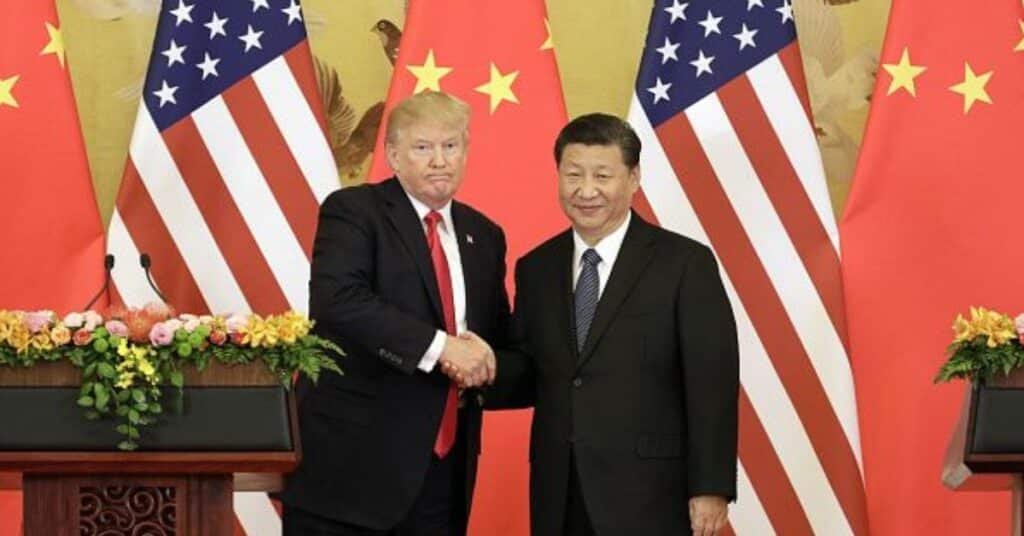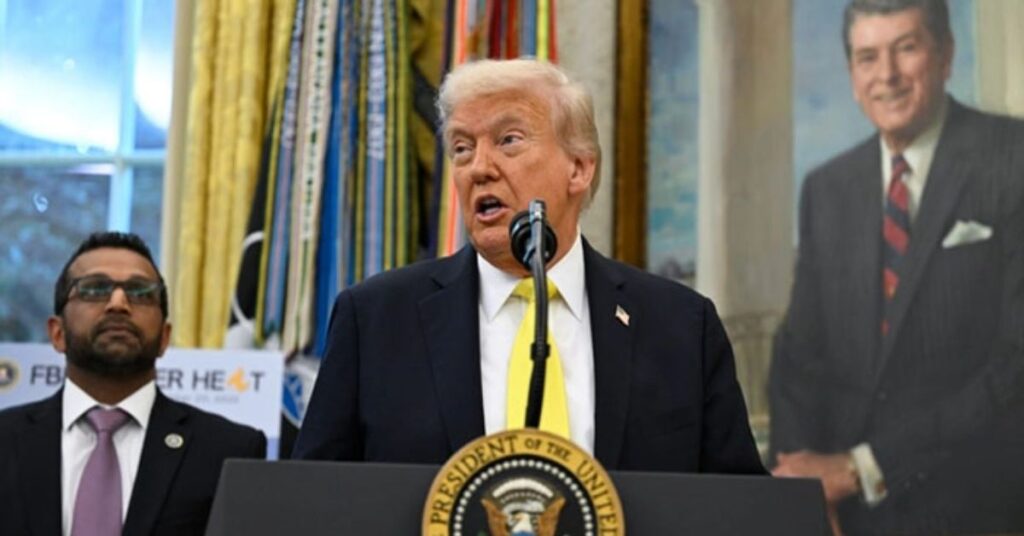BEIJING (Reuters): China hit back at U.S. President Donald Trump, singling out the world’s second-largest economy for tariffs of more than 100% by raising additional duties on American products to 84% on Wednesday, deepening the trade war between the two superpowers.
Beijing also imposed restrictions on 18 U.S. companies, mostly in defence-related industries, adding to the 60 or so American firms punished over Trump’s tariffs.
The move comes after Trump made good on his threat to impose an additional 50% tariff on China unless it withdrew its retaliatory levies on the United States, taking total new U.S. duties on Chinese goods this year to 104%.
Beijing announced in response it would also raise its levies on U.S. goods by 50%, adding to the 34% increase previously announced and due to be implemented on Thursday.
“The U.S. escalation of tariffs on China is a mistake on top of a mistake, which seriously infringes of China’s legitimate rights and interests and seriously undermines the rules-based multilateral trading system,” China’s finance ministry said in a statement.
Trump has imposed “reciprocal” tariffs on dozens of economies he accuses of “ripping off” the U.S. by selling goods into the world’s largest consumer economy while maintaining trade barriers that inhibit U.S. firms’ market access.
But he has singled out China for the most punishing taxes, setting the stage for a standoff between the world’s top two economies.
In signs that bilateral ties could deteriorate further, China’s culture and tourism ministry late on Wednesday issued a travel advisory for citizens visiting the U.S., citing recent “deterioration” of economic and trade relations.
Shortly after, the Ministry of Education followed with an alert for students considering studying in the U.S. state of Ohio, saying that a recent state education bill contained “negative” China-related provisions.
Travel and education are among the top U.S. services exports to China.
TRADE SURPLUS ‘INEVITABLE’
Earlier on Wednesday, China released a white paper on U.S.-China commercial ties in which it said Beijing did not deliberately pursue a trade surplus.
“The trade imbalance in goods between China and the U.S. is both an inevitable result of structural issues in the U.S. economy and a consequence of the comparative advantages and international division of labour between the two countries,” the report said.
China’s trade surplus with the U.S. widened to $295.4 billion last year from $279.1 billion in 2023, according to U.S. Census data. The goods trade gap peaked in 2018 at $418 billion, the same year Trump, in his first term as president, imposed tariffs on Chinese outbound shipments.
The first U.S.-China trade war concluded with Beijing agreeing to a “Phase 1” trade deal with Washington in 2020 in which it agreed to increase purchases of U.S. exports by $200 billion over two years.
Beijing failed to meet its targets when the COVID-19 pandemic struck but said in its white paper that it had “scrupulously fulfilled its obligations” by taking steps to boost its purchases of U.S. goods and accused Washington of having reneged on the deal.
“The U.S. has systematically escalated economic and other forms of pressure against China, the report said. “Concurrently, the U.S. has promoted false narratives related to human rights, Hong Kong, Taiwan, Xinjiang and the pandemic.”
China also talked up its efforts to boost its trade in services with the U.S., economic activity that the Trump administration has not factored into its “reciprocal” duties.




